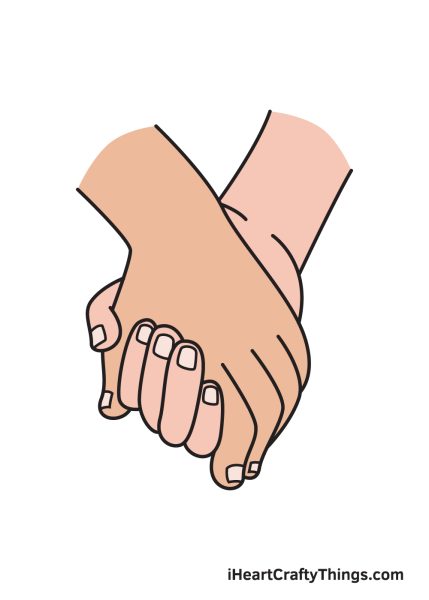
A study by the Robert Wood Johnson Foundation surveyed 7th graders and found that 3 in 4 said that they had a boyfriend or girlfriend. Do you feel like people shouldn’t be in a relationship at that age? Should middle schoolers be allowed to date at such a young age? Is dating in middle school a distraction or a bad influence on students? Some children in middle school believe that dating is fine and nothing bad can happen. But others feel that middle school is too young to be involved in romantic relationships.
Child development researcher Pamela Orpinas conducted a 7-year-long study on more than 600 children in 6th through 12th grades. Her findings, published in the Journal of Research on Adolescents showed that “dating in middle school is tied to poor study habits and even dropping out as well as behaviors such as drinking alcohol and doing drugs.” The research showed that “early daters reported twice as much drug, tobacco, and alcohol use and dropped out of school at four times the rate.”
Orpinas’s study, published in 2013, is still cited frequently today to justify why ‘puppy love’ is not as harmless as some make it out to be.
The RWJF study that surveyed 7th graders in relationships found that teen relationships are more prone to violence. Nearly 1 in 6 reported being a victim of physical dating violence in the last 6 months. Nearly 1 in 3 reported being a victim of electronic dating aggression. One in 3 students surveyed reported having witnessed boys or girls being physically violent to persons they were dating.

The fact that pre-teens’ brains are dealing with complicated emotions is often used to explain why they should not be in relationships. Wake Academy notes that teens do not have a fully developed prefrontal cortex–the part of the brain that uses logic to rationalize and make decisions. The website notes, “they are still relying on another part of their brain – the amygdala – to make decisions.” The amygdala makes decisions on emotions only, so choices in early relationships might be based on peer pressure, a desire to be accepted, an unnatural feeling of attachment to someone, or fear of rejection.
The patterns of poor decision making caused by emotional responses can spill over into school. Orpinas’s study suggested that students in relationships are worse students. It notes, “At all points in time, teachers rated the students who reported the lowest frequency of dating as having the best study skills and the students with the highest dating as having the worst study skills.”
The “Day Creek Howl” school news website interviewed teachers about their observations of students in relationships. The teachers noted that middle schoolers begin to become less focused in class when there are conflicts in a relationship. Relationships can lead to shifting priorities, and academics and responsibilities can be overshadowed. Trying to pursue a relationship, resolve a conflict, or avoid an ex can create distractions during the school day.
But the “Day Creek Howl” discussed that middle school relationships aren’t all bad. One teacher said, “I have seen kids come in, and they’re in a new relationship and they’re elated. Their confidence is boosted, they’re engaged in class [and] they’re proud of themselves.”
Wake Academy reported that some positives of teen relationships are a sense of confidence and an ability to feel more independent. Young dating experiences can give teens chances to practice for later relationships in adulthood. They can practice dealing with conflict, establishing personal boundaries, and communicating with others. But Wake Academy says that all of that needs to happen with close guidance from a parent since teens’ decision making is based on emotion and not logic.
Interviews with MMS students in relationships revealed that for many, they don’t take their relationships seriously. Student relationships were short-lived, and they could not share answers about their relationships beyond jokes.
One person interviewed said that their current boyfriend was “easy to talk to” and that “it’s not awkward” when they hang out. However, they broke up in the days following the interview.
Students interviewed that have been in a higher amount of relationships (more than three in the last year) tended to have a feeling that some of the relationships they had were a mistake. Some even defined their relationships as “toxic.”
For students who had just been in one longer-lasting relationship, their answers showed a more sincere tone. They sounded fairly more genuine about their relationships and less jokey about them, indicating that they take their relationship more seriously and that they respect or admire the person they found themselves in a relationship with.
While middle schoolers seeking out relationships is probably unavoidable as an important step in feeling independent, the research shows that it can often come with down sides. Teens should be aware of how early dating can impact their emotions and decision making.







